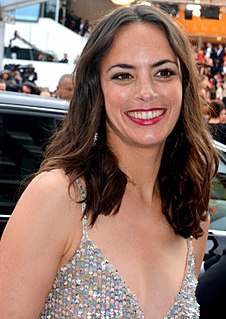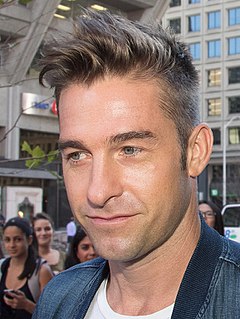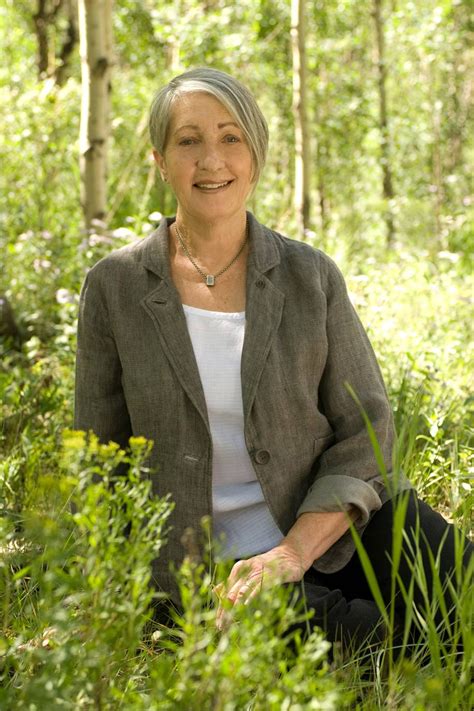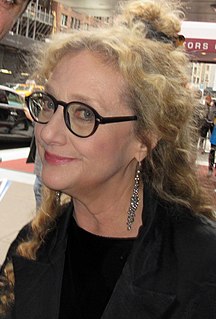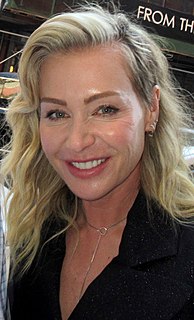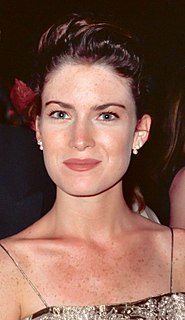A Quote by Bronte Campbell
When we were very, very young, I was actually better than Cate was at swimming, and I was not very humble and thought I was the greatest thing ever and rubbed it in her face a bit, and then she started trying really hard and started beating me.
Related Quotes
And when she started becoming a “young lady,” and no one was allowed to look at her because she thought she was fat. And how she really wasn’t fat. And how she was actually very pretty. And how different her face looked when she realized boys thought she was pretty. And how different her face looked the first time she really liked a boy who was not on a poster on her wall. And how her face looked when she realized she was in love with that boy. I wondered how her face would look when she came out from behind those doors.
I think, when I started to become successful in the movie business, my mother was very, very worried. She thought no one would want to marry me and she thought that was the most important thing. And she thought that it would affect my personal relations. And she said how worried she was that people would take advantage of me or I would meet the wrong people. When I was made head of the studio, one of her first things was, "Well, now no one will marry you. I hope you'll be happy, whatever."
I was so lucky because I started working very young. And my father was very wealthy and I didn't need to work. I did my films. I was very well paid for my age, and I could make choices, decide not to do a film for six months and wait until I'd get the right thing. Which made me quite a coward, you know. It's so easy to say no to stuff, and then, after a while, it's very hard to go back in.
I noted about Cate Blanchett was her very positive lack of concern for how she turns out in Cinderella. She is happy to be a villainess and very pleased to be encouraged as I did with her to reveal this backstory and feel as though this was very human, that this broken heart of hers, if you might regard it that way, would be visible, but she never played for sympathy and I really admired that about her, so she's just there, she just is and uncompromisingly.
I was runner that really started focusing on swimming at a very young age, and that's kind of how I got into acting. I was at a school for gifted athletes and gifted artists, and I got injured one year and started hanging out with all the actors and dancers and all those crazy people and started getting the bug.
To be very fair, it was Ian Marsh and Martyn Ware who started The Human League. They brought Philip Oakey in to sing, primarily because Philip was very tall. So it started out as their vision. I don't think anyone ever thought it would be as big as it became. Music evolves and people were looking for something different. We came out at the right time and were just very lucky.
The thing I'm writing now, I have various characters, and all of a sudden, out of nowhere, this couple dies. And they have a daughter. ...I thought, 'OK, we have to do something with the daughter' ... then I realized she's not really their daughter. She has her own story. And she's become the most interesting character. She was this throwaway character that I didn't even conceive of before I started writing her into it, and now she's become very important in this book.
"Baby, you know?" my mother once said to me. "I think you're the greatest woman I've ever met - and I'm not including my mother or Mrs. Eleanor Roosevelt in that." She said, "You are very intelligent and you're very kind, and those two qualities do not often go together." Then she went across the street and got in her car, and I went the other way down to the streetcar. I thought, "Suppose she's right. She's intelligent - and she's too mean to lie." You see, a parent has the chance - and maybe the responsibility - to liberate her child. And my mom had liberated me when I was 17.


